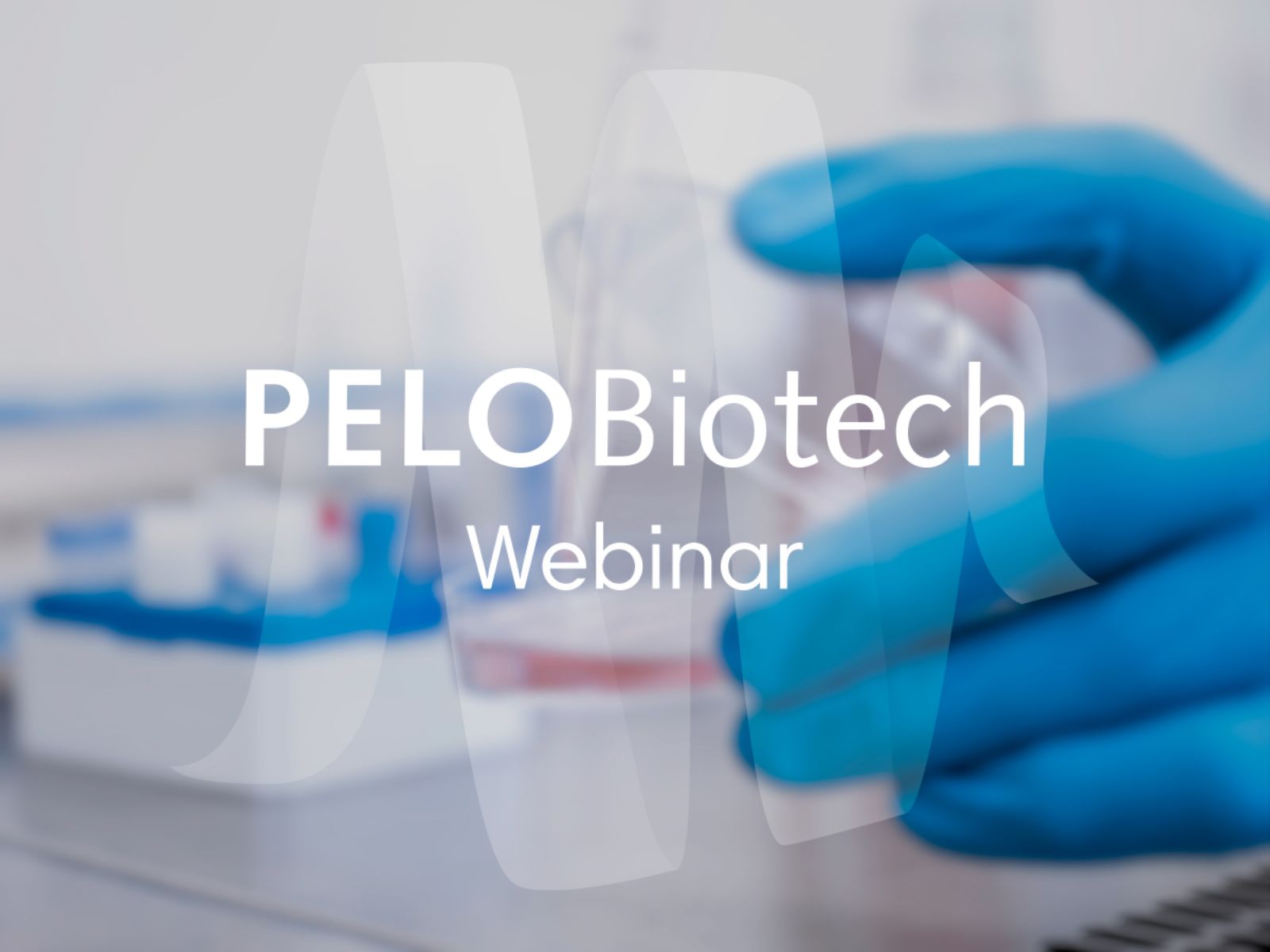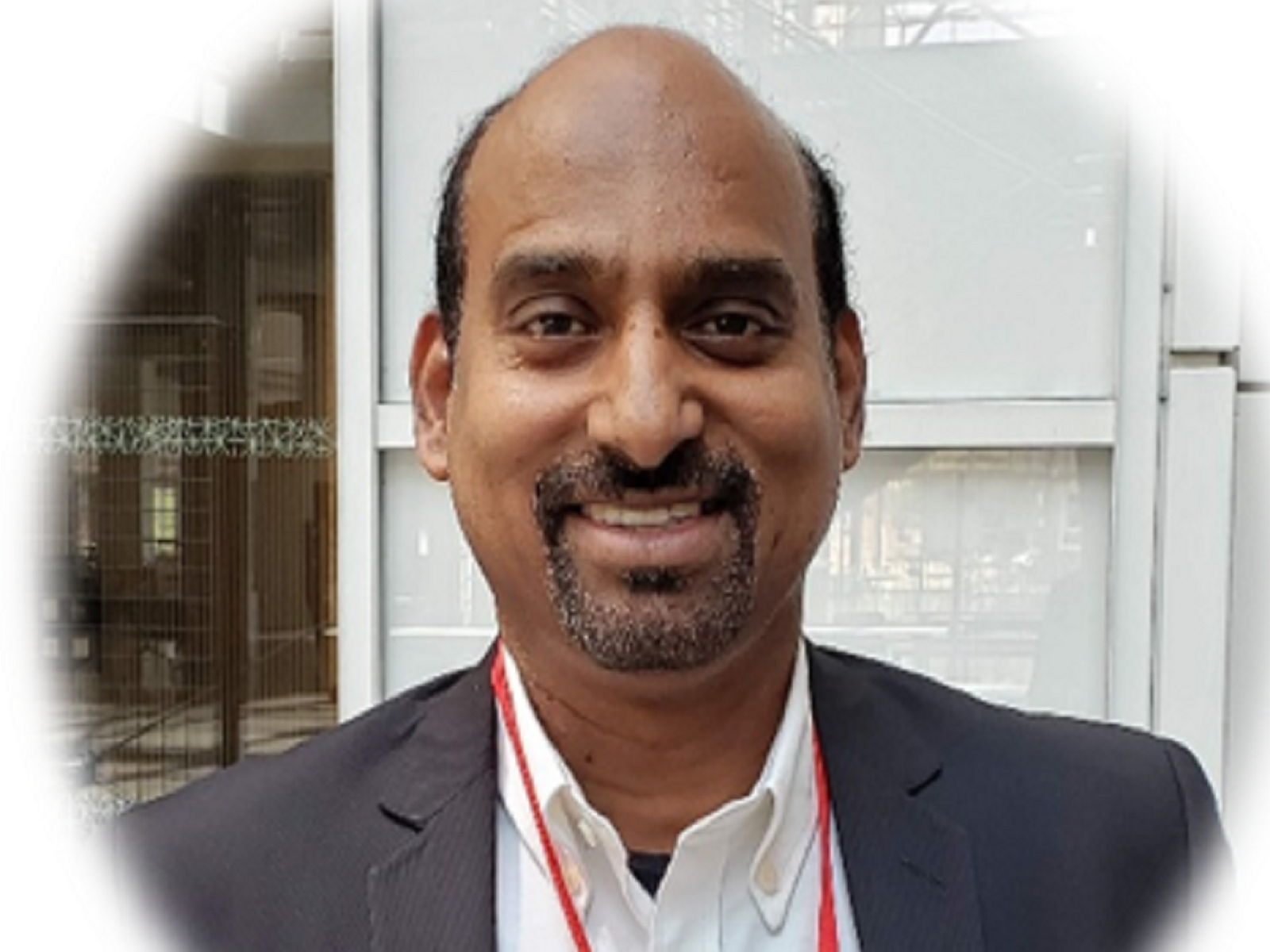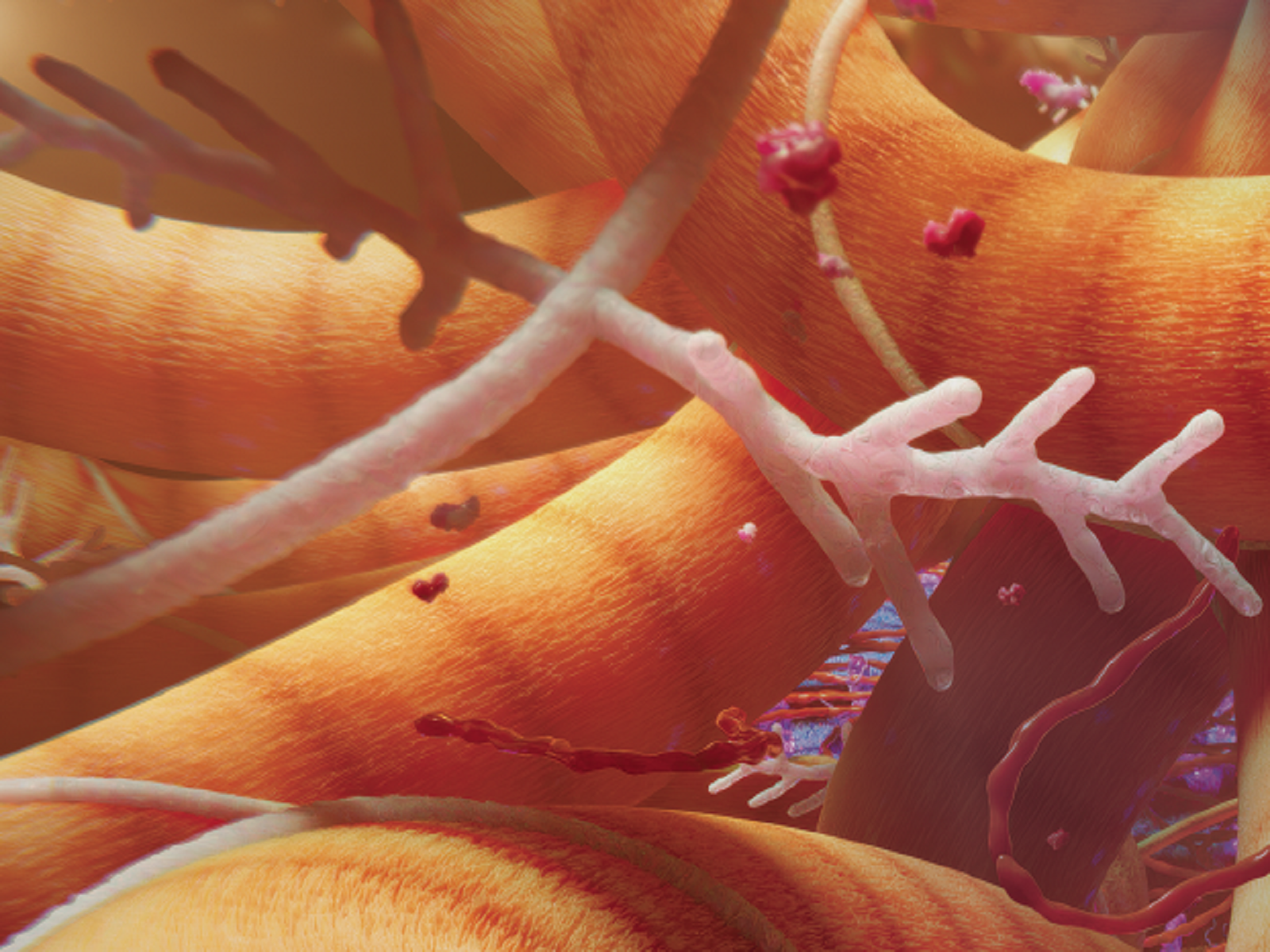Webinars
From scientist to scientist, our team of experts loves to talk to you. We share insights and open discussions in free webinars. Join us, lectures are in English, German and some in French, Italian, Polish, Spanish too (if you wish).
We love to inform our international audience. Regularly and whenever we see a need.

Live | June, 2026 10:00 AM - 11:00 AM (CET)
PELOAcademy | The CELLenger project: Cells under flow
presented by Dr. Xenia Kraus, Uni Augsburg
more coming soon

Live | Tue, April 14, 2026 10:00 AM - 11:00 AM (CET)
PELOAcademy | Vascularized 3D cell culture systems: Endothelial Cells in focus
presented by Dr. Severin Mühleder, Bartelt GmbH, Graz, Austria

Live | Thur, March 12, 2026 4:00 PM- 6:00 PM (CET)
Overcoming the Challenges of Islet Recovery from Young Donor Pancreases: An Update 5 Years Later
presented by Appakalai N. Balamurugan, PhD, Professor, Pediatric Endocrinology Director, Islet Biology & Transplantation, University of Louisville, USA
Discover how enzyme composition directly impacts islet quality and recovery in young donor pancreata, with new data showing clear advantages of increased protease formulations. Join this talk to see why IPC-based digestion—validated across intact organs using mixtures from VitaCyte, Roche, and Nordmark—may redefine best practices in islet isolation.

Digital event |
PELOAcademy | Unlocking potential with serum-free, animal-free and chemically defined media
presented by Dr. Lothar Steeb, CEO/ CSO, PELOBiotech
The future of cell culture is here: free from animal-derived components, yet richer in performance. Join us to explore how serum-free, animal-free, and chemically defined media are revolutionizing bioprocessing, from research to scalable production. Discover Cellovations® solutions, case studies and practical strategies to transition seamlessly while maintaining cell viability & productivity.

Digital event |
ISO 20399 Standard for Ancillary Materials: Relevance to Tissue Dissociation Enzymes
presented by Robert McCarthy, PhD, CEO, VitaCyte
A case study will be presented demonstrating how the biochemical characteristics of collagenase enzymes affected human islet yields, leading to fewer islet transplants in 2007 as part of the Clinical Islet Transplantation Consortium clinical trial.

Digital event |
PELOAcademy | Lisado de Plaquetas Humanas – Productos Clave para la Investigación con Células Madre Mesenquimales (MSCs)
presented by Dr. Julian Olmos, International Sales Manager PELOBiotech
Lisado de Plaquetas Humanas – Productos Clave para la Investigación con Células Madre Mesenquimales (MSCs)

Digital event |
PELOAcademy | Lizat płytek krwi ludzkiej – kluczowe produkty do badań nad MSCs
presented by Dr. Julian Olmos, International Sales Manager PELOBiotech
Lizat płytek krwi ludzkiej – kluczowe produkty do badań nad MSCs

Digital event |
PELOAcademy | Organ-on-Chip: Next-Gen human models for drug research
presented by Dr. Madalena Cipriano and Dr. Silke Riegger, 3R Network Tübingen
Highlighting how Organ-on-Chip technology is transforming pharmaceutical research and paving the way for personalized medicine through advanced human model systems.

Digital event |
PELOAcademy | Organoids: Insights into Cancer Treatment
presented by Dr. Ralf Horres, CEO GenXPro, Frankfurt
Exploring how organoid technology is revolutionizing cancer research and therapy.
Discover how these 3D cellular models are being used to simulate tumor environments, test personalized treatments, and accelerate drug discovery.

Digital event |
PELOAcademy | EVs Unpacked: Innovative Tools for Extracellular Vesicle Isolation
presented by Prof. Dr. Irina Nazarenko, UK Freiburg
Recording will be available after June 2025
We present a workflow combining high-purity EV isolation, a software for standardized size and concentration analysis across different instruments, and the new Protein Interaction Coupling assay for absolute biomarker quantification at the single-vesicle level directly in a reaction tube. The result: accessible, scalable solution advancing EV-based liquid biopsy&precision medicine.

Digital event |
PELOAcademy | Cardiac Organoids: From Generation to Application
Presented by Dr. Seon-In Hwang, leader of organoid team at Nexel Co., Seoul, South Korea
This webinar will highlight a 3D cardiac organoid platform developed using human iPSCs to accelerate the functional maturation of cardiomyocytes. The system enhances electrophysiological performance and contractility through multicellular organization and three-dimensional culture conditions. The study supports the platform’s potential use in cardiac toxicity screening, disease modeling, and preclinical applications. No recording available.

Digital event |
PELOAcademy | Human-based biomaterials: The missing link for more predictive 3D Cell Culture
Presented by Dr. Ana Rufino, Senior Researcher, Metatissue, Portugal
We present human protein-derived alternatives, focusing on human methacryloyl platelet lysates (hPLMA), a fully human, tunable biomaterial that overcomes the limits of conventional ECM substitutes. hPLMA-based scaffolds (hydrogels, sponges, microparticles) enable FBS-free culture, maintaining cell viability, proliferation, and differentiation across various cell types.

Digital event |
PELOAcademy | Scaled MSC Cultivation for EV Production using CDM-Challenges and Pitfalls
Presented by Dr. Tanja Kutzner, UK Essen
This webinar explores the journey to GMP-compliant EV manufacturing using clonally immortalized MSCs (ciMSCs). Tanja shares insights on CDM vs. hPL media, challenges in 2D and 3D culture transitions, and key hurdles in EV production, scale-up, and purification. Learn the lessons, pitfalls, and practical strategies from real-world CDM-based EV production.

Digital event |
Role of Nav1.8 Channels in Regulating Excitability of Human DRG Neurons Studied Using Suzetrigine
Presented by Dr. Bruce Bean, Ph.D. Professor of Neurobiology at Harvard Medical School, US
Dr. Bean will present recent findings on the selective Nav1.8 inhibitor, suzetrigine (Journavx), exploring its state- and temperature-dependent effects on neuronal activity. The session will highlight how suzetrigine influences action potential firing and refractory periods at physiological temperatures, offering key insights into the mechanisms of acute pain and the therapeutic potential of targeting Nav1.8 for clinical pain management.

Digital event |
Human-Relevant Vascularized Tissue Models
Presented by James B. Hoying, PhD, Partner and Chief Scientist at Advanced Solutions Life Sciences (ASLS), US and our partner VitaCyte
Date & Time: Thurs, June 19, 25 | 5 PM CEST/11 AM ET
This webinar will explore some of these concepts and avenues by which advanced human-relevant tissue models are employed. An overview of cell sourcing for these models, including vascularization solutions, will be discussed while highlighting solutions to readily build and deploy complex, vascularized tissues for human-relevant tissue modeling and regenerative therapies.

Digital event |
Challenges Facing the Isolation of High-Quality Islets for Total Pancreatectomy with Islet Autotransplantation
Presented by Bashoo Naziruddin, PhD, Director of islet cell processing lab at Baylor UMC Dallas, USA, and our partner VitaCyte
This presentation will highlight the recent progress made by our team in the field of TPIAT with emphasis on the identification of biomarkers for the prediction of good islet yield from the inflamed pancreas and favorable endocrine function during the post-transplant period.

Digital event |
PELOAcademy | How the choice of medium affects your research
Presented by Dr. Lothar Steeb, CEO&CSO PELOBiotech
Join us for a comprehensive overview of various types of cell culture media, their composition, and their applications in research and industry. Understanding the right culture medium is essential for optimizing cell growth, viability, and experimental outcomes.

Digital event |
PELOBiotech | Presentación de la empresa - (en Espanol)
Presented by Dr. Julian Olmos, PELOBiotech
Este webinario está dedicado al mercado español, el Dr. Janna Olmos presentará la empresa, las distintas gamas de productos, y como PELOBiotech puede ayudarle con sus necesidades científicas tanto a nivel de I + D como a nivel clínico y farmacéutico.

Digital event |
PELOAcademy | Animals in the (Petri) dish: Towards a truly animal-free laboratory
Presented by Tilo Weber, Deutscher Tierschutzbund e.V./Academy for Animal Welfare of the German Animal Welfare Federation
Accurate laboratory results are crucial for cell cultures but are hindered by undefined, animal-derived materials like fetal bovine serum, Accutase, and Matrigel. These pose reproducibility, safety, and ethical challenges.
This talk highlights these issues and presents animal-free alternatives to enhance reliability and reproducibility in cell and tissue cultures.

Digital event |
PELOBiotech | Presentazione dell'azienda
Presented by Leonardo Basso, PELOBiotech, in Italiano
PELOBiotech GmbH è un’azienda specializzata nello sviluppo e nella fornitura di soluzioni per la ricerca cellulare. Con uno dei più ampi portafogli di prodotti al mondo, offre cellule primarie, terreni di coltura, sistemi 3D e soluzioni personalizzate per diversi ambiti della ricerca biomedica. Grazie a collaborazioni con fornitori internazionali di alto livello, PELOBiotech garantisce materiali di alta qualità, inclusi prodotti GMP-compliant per applicazioni avanzate come la medicina rigenerativa e la terapia cellulare. Con questo webinar dedicato al mercato italiano Dr. Leonardo Basso presenterà l’azienda, le varie fasce di prodotti, come collaborare con PELOBiotech e risponderà alle vostre domande.

Digital event |
PELOAcademy | Mycoplasma in Cell Culture: Prevention, Detection, Elimination
Presented by Prof. Dr. Gerhard Gstraunthaler, med. Universität Innsbruck (ret.), Austria
This webinar will help us understand the biology of mycoplasma, its sources of contamination, and the safety concerns it poses in cell culture. We'll discuss the effects of mycoplasma on cultured cells, methods for detection, and practical strategies for prevention and elimination. Gain essential insights to maintain the safety and integrity of your cell cultures.
Therefore, routine testing for mycoplasma is of critical importance. In this webinar we will talk about - the biology of mycoplasma - the source of contaminations and safety aspects - the effects on cultured cells - methodes of testing - prevention and elimination

Digital event |
PELOBiotech: Presentazione dell'azienda
Presented by Leonardo Basso, PELOBiotech, in Italiano
PELOBiotech GmbH è un’azienda specializzata nello sviluppo e nella fornitura di soluzioni per la ricerca cellulare. Con uno dei più ampi portafogli di prodotti al mondo, offre cellule primarie, terreni di coltura, sistemi 3D e soluzioni personalizzate per diversi ambiti della ricerca biomedica. Grazie a collaborazioni con fornitori internazionali di alto livello, PELOBiotech garantisce materiali di alta qualità, inclusi prodotti GMP-compliant per applicazioni avanzate come la medicina rigenerativa e la terapia cellulare.
Con questo webinar dedicato al mercato italiano Dr. Leonardo Basso presenterà l’azienda, le varie fasce di prodotti, come collaborare con PELOBiotech e risponderà alle vostre domande.

Digital event |
PELOAcademy | A Master Student's Guide to Research at Stanford
Presented by Kevin Abraham, Stanford University @Prof.Tony Wyss-Coray, Nobel Laureate Carolyn Bertozzi, and Dr. Michael Schoof. Pursuing an Elite M.Sc. in Human Biology, LMU Munich.
I will share my journey of moving to the U.S. for my master’s thesis in aging research at Stanford University, including how I secured a position, funding, and navigated cultural and academic challenges. You'll learn practical tips on contacting potential thesis labs, obtaining funding and visas, and understanding key differences between the U.S. and Germany in research and funding environments.

Digital event |
PELOBiotech w pigułce
Prezentowany przez Dr. Julian Olmos, PELOBiotech
Chciałbym przedstawić Ci firmę, w której pomagamy naukowcom i badaczom takim jak Ty. Jestem naukowcem od 11 lat, więc wiem z pierwszej ręki, jak trudno jest podjąć właściwą decyzję, jeśli chodzi o wybór odpowiednich produktów do badań. Jesteśmy międzynarodowymi specjalistami w dziedzinie biomedycyny regeneracyjnej dla zwierząt i ludzi. Zajmujemy się również produktami GMP i klinicznymi. Jeśli chcesz dowiedzieć się więcej o regeneracyjnej mocy komórek macierzystych, nie przegap mojego webinaru!





